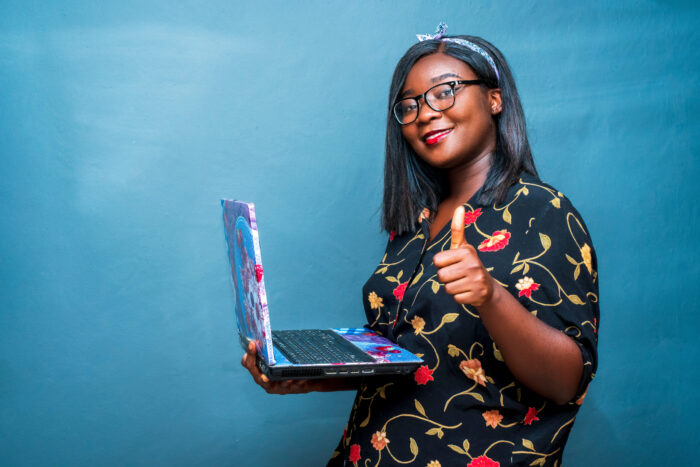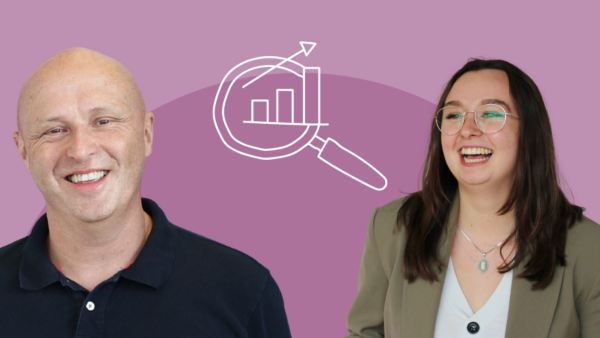Whoever you are, today’s tech is pretty mind-blowing. But we humans are adaptable creatures, and tech acceleration hasn’t all happened in one go, and we’ve pretty much kind of sort of managed to keep pace, adapt and get the best from what’s out there as it’s evolved.
Why do we need self-management?
However, our tech-enabled world has come at a price. It can be genuinely challenging to deal with the pace and volume of information coming at us day to day, to sift and sense-make, to stay focused and not distracted, sticking with things for longer than 30 seconds, seeing through the dopamine-laced design of much of the tech that surrounds us.
That’s really hard. And to a lesser or greater extent, it’s affecting our sleep patterns, our relationships, our stress levels. I’m not an anti-techer (although I’m not an early adopter either, I kind of want to see evidence that something works and is valuable I jump in). I’m all about Netflix and iPhones, Spotify and FitBit because I feel that tech genuinely enriches my life. But with all those potential distractions surrounding you, how can you improve your self-management game to keep on top of your personal productivity and stay in control?
How can you improve personal productivity with all this going on?
I’m going to make this punchy because there’s a lot we could dive into but I want to stay focused. And if you’re interested in this topic, my back catalogue has quite a few ideas. To select just two: How to do a digital detox was my third ever podcast, way back at Season 1, episode 3. The more recent Making homeworking work for you at Season 6, episode 12, has some practical tips on managing your homeworking routine to stay productive. Both of these are worth a listen for more.
Today, I’m going to focus in on some practical tips for digital era self-management and productivity. Including:
- Remember who’s in control, you or the technology. Even though the technology is designed to keep you interacting, you still have the power of choice how much to use it.
- Being present in the moment and learning to push away distractions.
- Prioritise true human connection. Although the pandemic is making it harder to connect in person but we can still use technology to connect with friends, family, work colleagues in more meaningful ways.
- Build digital self management habits. Building good “digital detox” habits, such as no tech in the bedroom or at the dinner table, can be a great start at escaping the constant distraction presented to us by technology.
Remember who’s in control
Which is easy to say and much harder to do. But at the end of it all, Netflix doesn’t control you, you don’t have to binge-watch a series just because it’s feeding you a new episode after 10 seconds and you just can’t seem to find the remote in time to pause it. Your fitness tech isn’t demanding that you go out for a run or that your resting heart rate needs to be X bpm. Yes these technologies are all designed to nudge you, remind you, gain your attention, ultimately to gain a maximum share of your interactive hours.
You paid for them, you know where the off buttons are, you can pause them whenever you like. I remember going without FitBit (and Strava) for a few weeks and just running free – no strap on my wrist, no record of where I’d been or how fast I was running, no biofeedback. It was wonderful, it helped me reset and when I went back to both, it was a choice and it reminded me that I was in control. Remember that you have choices, you are the boss of the tech and not the other way round. If it’s helping you live your best life, genuinely, good, that’s a win. If not, switch off and reset to stay productive and happy.
Be present
With homeworking on the increase and tech distraction turned up to 11, being present is harder than ever. But, I can’t emphasise enough what a positive difference building a practice around being present will have. What I mean by this is stopping everything a few times a day and making a conscious choice where you’re sat (or even better out in nature) to allow your senses to take in everything and just be fully there for a few moments. Inevitably, you’ll get distracted again by a thought or feeling or to do list item but the trick then is to catch yourself at the moment of distraction and go back to being present in the moment.
Doing that repeatedly means you get better at spotting the distraction and making a choice to push it away and move back to just being in the moment. I find that reassuring and real – being present and mindful isn’t about being a superhuman “Zen God” where you’re never distracted. In fact the distractions are helpful. That practice is at the heart of self-management, self-control and in the end, personal productivity, because you’re stretching your focus muscles each time you get distracted and then bring your focus and attention back to the moment. They’re not actual muscles obviously, they’re neural pathways helping you build self-control.
Prioritise true human connection
We’re hearing more and more about relationships being negatively affected by digital life and while it’s easy to blame invasive technology for that, of course in the end, it’s a choice for each of us. The pandemic is making it harder to connect in person but we can still use technology to connect with friends, family, work colleagues in more meaningful ways. We’ve naturally become more used to reading emotions through screens and if we’re prepared to ask real questions and to truly listen, then it’s still more than possible to connect on a human level.
Personally, I like to tell people how I’m feeling when I’m feeling a feeling if I’m meeting them through a screen because it isn’t always obvious and of course that can take a bit of courage (to say, wow that’s making me feel quite emotional, or ok I didn’t expect that feeling to be so strong) but it really helps that human-human connection that most of us naturally crave. And with more meaningful human connections, we develop more of a support network to help us stay well and to thrive when we’re facing in to more challenging times.
A quick word here on leadership in the digital era – as a leader and a manager, in these tech-enabled times, it’s important to get good at asking questions, listening, reading emotions through a screen, really connecting. I have some more tips on this and managing people virtually in my podcast on Getting the best from remote management at Season 7, episode 1.
Build digital self-management habits
In terms of self-management and maximising personal productivity, building in good detox habits through each day can be a real cornerstone. What do I mean? Well, sleep hygiene for one – making your bedroom a tech-free zone is a great start. I listen to Brene Brown’s Unlocking Us podcast channel often enough to have heard her rapidfire questions at the end of each show a few times and one of the questions she always asks her guests is ‘what do you have on your bedside table?’ and every time people have such interesting answers. I don’t. I have a bottle of water.
That’s it.
No tech, no TV in the room, blackout curtains, done.
Boring. And, for me, the best way to set myself up for a good day ahead as many days of the week as I can.
Sleep aside, I’m also talking here about building habits, routines and even household rules about when and where tech is ok and not ok. No tech at the dinner table. Or maybe even upstairs. Taking regular breaks during the day from any technology. Getting into nature. Being able to close the door (or the lid) on work. These are mini-breaks, not full-blooded attempts to digitally detox, it’s more digital self-management.
In conclusion
That’s it, I said today’s blog would be short(er) and punchy(er) so there you have it. To maximise your personal productivity and self-management in the digital era, remember who’s in control, be present, prioritise true human connection and build daily digital self-management habits. Till next time, stay strong.
You can find this podcast on Apple podcasts, Spotify, Google podcasts, Stitcher, ACast, TuneIn, Breaker and Soundcloud. Please support it by subscribing to get it at the start of the working week!












